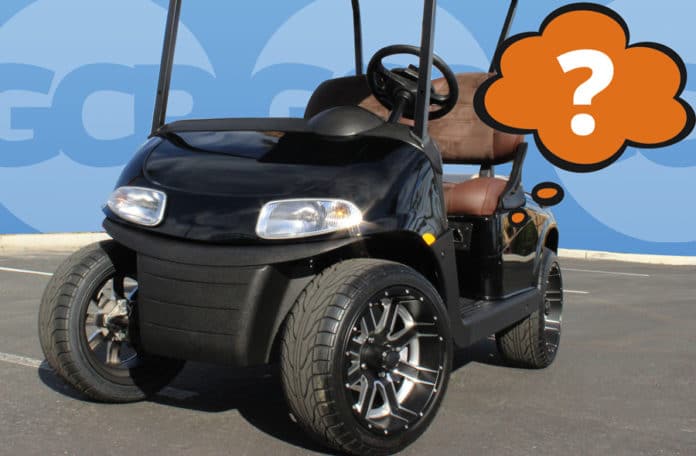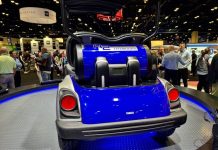
Having fixed golf carts for 35 years, the one thing that most golf cart mechanics dislike is the Noise, or Intermittent “no go”. Let’s look at how you can help to diagnose these issues.
Let’s Start with Noises in Your Golf Cart.
Here is one such instance I will describe that I experienced a few years ago.
This customer had a ParCar, and said it made a noise all the time. I took the golf cart for a ride and no noise was detected. I returned back and asked the customer if he could make the golf cart make the noise. We both get in the cart and he proceeds to take me for a ride. Sure enough, it’s not making the noise. He proceeds to drive the cart into his backyard and floors it. We left his backyard at 20 MPH while jumping over the driveway curb. When all 4 wheels came back down on the ground, he asked the question “Did you hear it?”. Needless to say I heard a whole bunch of noises.
Folks, if that is what it takes for you to hear the noise your golf cart is making, then you don’t have a noise.
I know what you are thinking. The above is an extreme example of a customer’s noise complaint, but there are a few things you can do to help narrow it down.
First question I always ask is whether or not it makes the noise all the time. While most customers say yes, I find most of the time it only makes the noise about 40 percent of the time.
If the noise is not constant, does it happen at a particular speed, do you have to be turning, if so, does it happen on a right turn or a left turn?
Try to determine if it is coming from the front or back, right side or left side. Although this can be difficult for the untrained ear, if you can help distinguish where the noise is coming from, it will give your tech an area to look into.
Some golf carts have known problem areas and many times an experienced tech will know exactly where to look given the right info.
The Intermittent “No Go” Situations in Gas and Electric Golf Carts.
Starting with gas golf carts, the first thing to determine is whether or not the motor is turning over when the pedal is pressed.
My first question is always, “Do you hear the motor turning over?” If the answer is yes, then you know your problem lies with the motor. That would be the 4 things that a gasoline engine needs to start. Fuel, air, spark and compression. Which one are you missing?
If the motor does not turn over when you press the pedal, then you know it is electrical.
Determining an electrical issue is a bit harder as it takes only a few components to get a gasoline engine in a golf cart to turn over.
In an effort to help diagnose the issue, try and listen for the solenoid to click. If you can hear the solenoid activate and the motor does not turn over, as a tech, I know power is making it that far in the system. This will help narrow it down.
Where it gets really difficult is when you have an intermittent, no start issue. For me, I don’t like to guess and give my customers the option of me guessing what the most common issue would be, or allowing the issue to become more frequent so it is a spot on repair. Use your discretion on how you would proceed.
Dealer Locator: Find a Golf Cart Dealer Near You
On an intermittent issue with an electric golf cart, you already know its an electrical issue, and it can, again, be difficult to determine which component is not operating at every press of the pedal. Again, try to determine if you can hear the solenoid click. If you can, this will divide the system up for us and help us know what to test to figure out what the issue may be. If you hear nothing, then it could be anything related to making the cart run.
Remember, if you hand us a broken golf cart, we can tell you what’s wrong with it. You hand us a cart thats running and tell us it sometimes doesn’t run, it can be difficult to tell you what’s wrong with it.
Giving your tech as much info as you can will help with diagnosing your issue, whether it is a noise related issue or intermittent problem, it can be repaired.







